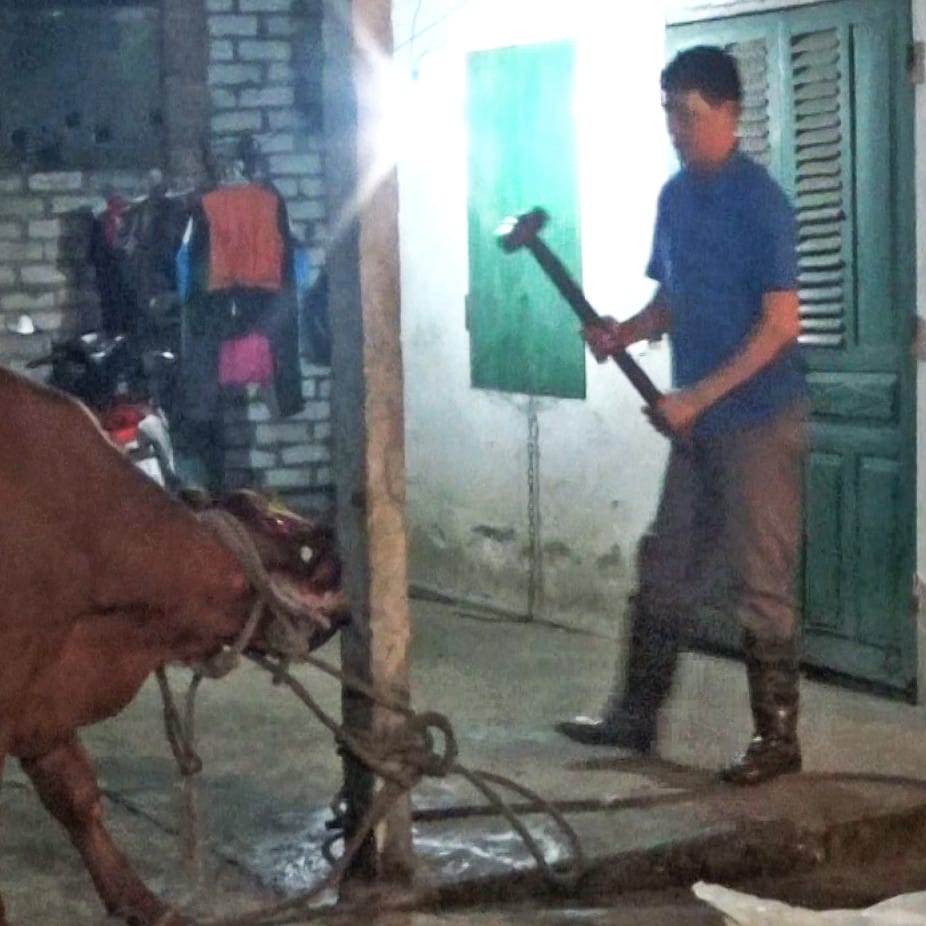Live export trade’s animal welfare framework ‘failing’ Australian animals
New cruelty complaints about Australia’s live export trade show how the Government's animal welfare framework is failing to protect animals, animal protection groups say.


By KIRSTI WEISZ
New cruelty complaints relating to Australia’s live export trade show how the Government's animal welfare framework is failing to protect animals, according to animal protection groups.
The Export Supply Chain Assurance System (ESCAS) was introduced in 2011 following the Four Corners investigation into the cruelty occurring in Indonesian slaughterhouses. The system aims to control the treatment of animals from their arrival on foreign soil to their slaughter.
While animal welfare groups agree that there have been positive changes since ESCAS was introduced, ongoing breaches and new complaints reveal flaws in the system.
The slaughtering of Australian cattle with sledgehammers in Vietnam was one of Animals Australia’s most recent complaints.
An RSPCA spokesperson said the industry confirmed reports of cattle being beaten with sledgehammers and the act of "flooding" where a hose was used to force water down the throat of the cattle to make them heavier for slaughter.
Since January 2013, when ESCAS was implemented in Vietnam, there have been 12 breaches, according to the Department of Agriculture’s website.
Animals Australia went live with the complaint in May but Agriculture Minister Barnaby Joyce said authorities had been investigating the claims since March.
Animals Australia communications director Lisa Chalk said Vietnam was the “classic example” of ESCAS not working.
“This was the industry’s chance to get something right from day one rather than trying to rectify systemic problems after cruelty is exposed,” Ms Chalk said.
“They not only started sending animals before ensuring the integrity of their supply chains but when problems arose, they sent more animals, throwing fuel on the fire and condemning thousands of cattle to horrific cruelty as a result.”
The Vietnamese Embassy in Australia released a public statement in response to the complaint, saying approved abattoirs were complying with ESCAS and that "proper action" would be taken if the alleged breaches were true.

“Approved abattoirs in Vietnam have been operating fully in compliance with Australian Exporter Supply Chain Assurance System, as it is beneficial not only for Vietnamese consumers but also for Australian farmers,” the spokesperson said in the statement.
However, Ms Chalk said the whole system in Vietnam was corrupt, with exporters admitting that everyone’s working outside the system and pointing the finger at each other.
“[The fact] that cattle exports have continued unabated shows just how ineffective ESCAS is, not only at preventing animal cruelty but in failing to ensure export companies are adhering to their legal obligations,” Ms Chalk said.
Animal welfare groups said such flaws in ESCAS were downplayed in the first report into the system by the Department of Agriculture in January this year.
While the report found there were improvements to animal welfare since the suspension of the trade in 2011, Ms Chalk said it failed to consider obvious flaws that urgently needed to be addressed.
“Gaping flaws in ESCAS have led to many thousands of animals being subjected to horrific abuse, yet this review neither acknowledged nor addressed them, an astonishing failure that is not in the interests of producers or their animals,” she said.
In drafting the report, the Department of Agriculture received 36 submissions. Of these submissions, only four were from animal welfare groups with the remaining from government departments and industry stakeholders.
The animal welfare groups expressed concern that ESCAS did not require pre-slaughter stunning and allowed the use of full-inversion cattle slaughter restraint boxes, which tips the cattle off their feet and turns them upside down for slaughter.
The RSPCA and Animals Australia said the 99 per cent compliance rate identified in the report was a “misrepresentation”.
Out of the 59 incidences reported as non-compliant, which affected fewer than 13,000 animals, the report found 22 had a potentially direct impact on animal welfare.
However, the report said the true non-compliance rate was unknown because of the lack of information concerning what is not detected or reported.

Ms Chalk said the Government would not know what was happening to Australian animals on a daily basis without Animals Australia.
“Had Animals Australia not detected and reported ongoing breaches of regulations in Israel, Gaza, Jordan and Kuwait, the department would have not even known that regulations were being ignored in these countries,” she said.
Animal protection institution Voiceless legal counsel Emmanuel Giuffre said that even when ESCAS breaches were brought to the attention of authorities, there was an issue with enforcement.
“A large problem is that where animal welfare breaches are detected … the full force of the law isn’t actually brought down on perpetrators,” he said.
Under ESCAS, the Department of Agriculture has four ways to respond to breaches. The Department can apply additional conditions or restrictions to the exporter, suspend the use of a facility or supply chain and take action against the exporter’s licence.
The most severe tool available is the ability to prosecute the exporter for failing to meet ESCAS requirements, but no criminal prosecutions have been pursued.
Mr Giuffre said the Government’s response had been largely to add additional conditions on to the licences of exporters and that this was a reactive way of resolving underlying problems.
“The reality is that there are legitimate penalties under the live export regulatory regime but they’re never used,” he said.
The report said the lack of prosecutions reflected the difficulties in pursuing criminal action against the exporters for the breach of animal welfare standards occurring in another country.
According to Mr Giuffre, regulating animal welfare in foreign countries was “impossible” and exporters lost control of the animals once they embarked on their journey.
"Given the fact that it’s impossible to regulate those welfare requirements, it creates an obvious question … why should animals be there if we can’t guarantee their welfare?” Mr Giuffre said.
Another issue animal welfare groups were concerned about was animals being removed from ESCAS-approved supply, which accounted for 62.7 per cent of ESCAS breaches in the report.
Animals Australia investigations have revealed “atrocities” occurring in multiple countries where Australian animals were being sold illegally.
“The whole regulatory system in the Middle East has been undermined by the deliberate removal of ear tags identifying animals to an exporter … which gives a clear signal to wrongdoers that the government doesn't take compliance with this system seriously,” Ms Chalk said.
Mr Giuffre said ESCAS gave a façade it could regulate systems overseas and that the positive changes to the slaughter and treatment of animals were because of animal welfare groups and political pressure.
“[The live export trade] is intrinsically cruel and there is no way of being able to improve [that],” he said.
“The problem is that welfare is not the No.1 priority, the No.1 priority is profits.”





